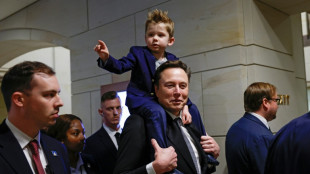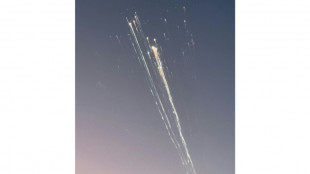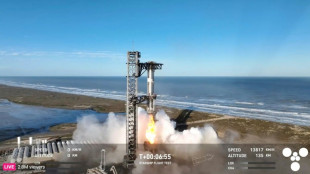Vega-C rocket lost after lift-off in Europe space setback
Europe's new Vega-C rocket was lost shortly after lift-off from French Guiana overnight with two satellites on board, in the latest blow to European space efforts.
The launch failure on Tuesday night threatens to ground the Vega-C, which would leave Europe without a short-term way to send satellites into orbit after delays to the Ariane 6 rocket and cancelled Russian cooperation over the Ukraine war.
If it had been successful, it would have been the first commercial launch of the Vega-C since its inaugural flight on July 13.
But just minutes after lift-off at 10:47 pm local time (0147 GMT Wednesday), the launcher's trajectory deviated from its programmed route and communications were lost, according to commercial launch service provider Arianespace.
"The mission is lost," Arianespace chief executive Stephane Israel said from the Kourou Space Centre in French Guiana, a French department on South America's northeast coast.
An "anomaly occurred" in the second stage of the launcher, "ending the Vega-C mission", the company said.
The rocket was launched over the Atlantic Ocean and had shot past 100 kilometres (62 miles) altitude and was more than 900 kilometres north of Kourou.
It was not immediately clear whether the rocket's destruction device was activated or whether it crashed into the sea.
"Data analysis is under way to determine the reasons for this failure," it added.
A press briefing is scheduled for noon on Wednesday in Kourou.
- 'Sobering reminder': Musk -
Elon Musk, the CEO of US rival rocketmaker SpaceX, tweeted that he was "sorry to hear this".
"It is a sobering reminder of the difficulty of orbital space flight," he added.
Peter Beck, the CEO of US launch service provider Rocket Lab, tweeted that "small launch is way harder than most people think".
The rocket had been trying to bring into orbit two Earth observation satellites built by Airbus that were planned to join the Pleiades Neo constellation. The constellation is capable of capturing very high-resolution images of any point on the globe several times a day.
The failure is a blow for the European aerospace giant Airbus, which developed the programme, whose services are sold to both companies and the military.
Satellites that bring in commercial revenue are usually insured. An industry insider said that the Pleiades Neo 5 and 6 satellites were covered for 220 million euros ($233 million), potentially allowing Airbus to build them again.
Airbus did not comment when contacted by AFP.
The launch was originally scheduled for November 24.
However it was postponed for a month due to a faulty piece of equipment linked to the payload fairing, a type of nose cone, Arianespace's Israel branch told AFP. The reason for the postponement was not believed to be related to Tuesday night's failure.
The Vega-C is the newest version of the Vega rocket system, with Tuesday marking the third failure out of 21 launches since 2021.
- Inquiry commission -
Arianespace said the error occurred in the Zefiro 40 stage, which was specifically developed for the Vega-C, unlike many other parts of the launcher.
Vega-C's prime contractor is the Italian aerospace firm Avio, whose share price had plunged nearly nine percent on Wednesday afternoon.
Avio CEO Giulio Ranzo said in a video statement that "an inquiry commission will be put in place by the European Space Agency and Arianespace who will work with the Avio team to understand the root causes of this failure".
It was also a major setback for the European Space Agency (ESA), which aims to make Europe more competitive in the rapidly expanding satellite market.
European hopes have been pinned on the Ariane 6 rocket, but the postponement to the end of 2023 of its inaugural flight, which had been initially planned for 2020, has dashed the ESA's expectations.
Europe's space sector has been further weakened by Russia's invasion of Ukraine, which put an end to its cooperation with Moscow.
In the absence of an alternative, ESA has been forced to turn to SpaceX to launch two scientific missions.
gr-juc-mra-dl/pvh
A.Amaya--ESF




